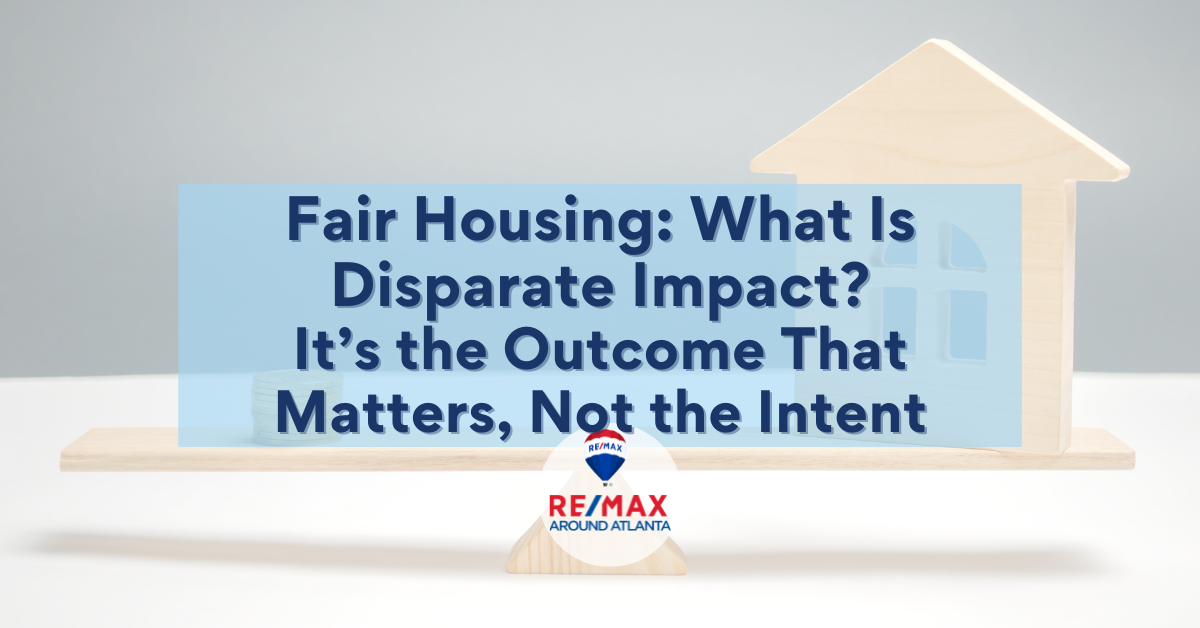|
What is the Disparate Impact? Disparate impact allows people to challenge housing discrimination without having to prove “discriminatory intent” in the mind of the discriminator. In other words, it’s the outcome that matters, even if it’s impossible to demonstrate (as it usually is) what a landlord, developer or an insurance company’s intention was when they took the discriminatory action. Take for example a landlord that institutes a new rule that any tenant that calls 911 for emergency services more than twice in 6 months can be evicted; as a result, several women and their children are evicted from their homes after calling the police or an ambulance as a result of domestic violence. This policy has had a “disparate impact” on women, since 95% of domestic violence victims are women—although anyone can be a victim of domestic violence. While the landlord’s policy doesn’t explicitly state they will evict women, the impact of the policy puts up barriers to women renting. That’s the basis of disparate impact: it’s not what you say or intend, it’s what are the results of your actions. Why is the Disparate Impact Standard So Important?The Fair Housing Act says that no one can discriminate in the terms, conditions or privileges of sale or rental of housing to people based on their race, color, religion, sex, disability, familial status, or national origin. Even in an era where white supremacy is crawling out from the shadows into mainstream society, it’s still pretty rare to find big banks, developers, corporate landlords and insurance companies that will put in writing something that says, “let’s design this policy to make it harder for people of color to move into our building.” But, far too often, that’s what their policies do. The Fair Housing Act and its disparate impact standard allows the public—and HUD as the agency tasked with enforcing the law—to hold those accountable whose policies drive unequal outcomes. Disparate Impact Examples Scenario: Full-Time Employment Required Situation: A 50 unit apartment building has opened up and is accepting new applications. The application states that every tenant must be employed full-time. Outcome: The landlord says he wants to be sure the applicants can afford their rent. But the full-time employment requirement means that disabled, senior, and potentially veteran applicants who may have enough income to afford the apartment but aren’t working full-time are barred from becoming tenants. Resolution: By restricting access to seniors and disabled renters, the disparate impact standard would apply. The landlord would be required to rework the application to allow anyone who can afford the rent to get an apartment. Scenario: One Bedroom, Two PeopleSituation: A new apartment building is planned for the neighborhood and the developer has decided that they will all be one bedroom units. The developer and manager have instituted a rule that no more than two people can live in each unit. Outcome: This policy would discriminate against a couple with a child that could safely sleep in the single bedroom; it would have a disparate impact on families with children by denying them access to a unit they could afford and thrive in. Resolution: Even if the policy appears to be neutral, it has a discriminatory impact—a disparate impact on families with children and would need to change. Scenario: Refusal to InsureSituation: A homeowners insurance company refuses to insure apartment buildings if an owner plans to rent out the units to people with a Section 8 housing assistance voucher. Outcome: In order to buy the building, the owner has to have insurance, so the insurance company’s policy forces them to not accept Section 8 voucher holders. Since people of color suffer from higher rates of poverty than white people, more people of color would be affected by this insurance company’s rule and their access to housing diminished. Resolution: The insurance company’s policy will have a big impact on the availability of subsidized housing to people of color. That policy will have a “disparate impact,” or a more severe impact, on people of color and would not be permissible. The insurance company has to strip the source of income discrimination to not violate the law. Scenario: Zoning LawsSituation: A high-income, all-white suburb draws up new zoning laws that state they will not allow the construction of any affordable housing in their city. Outcome: The suburb is surrounded by a large, racially diverse city where people of color are more likely to be lower income. The zoning policy appears—on paper—to be ‘race-neutral;’ but in practice, it keeps people of color from accessing housing in the opportunity-rich suburb. Resolution: The zoning policy appears—on paper—to be ‘race-neutral;’ but in practice, it disproportionately keeps people of color from accessing housing in the opportunity-rich suburb. The zoning law has a disparate impact on people of color and their ability to access housing and in violation of the Fair Housing Act. Conclusion: Be very, very careful in representing landlords. A landlord may not intend to discriminate, but if the impact of the landlord’s guidelines affects a protected class more than the general population, a claim for violation of Fair Housing could result. Remember, it is the policy of RMAA that Associates should never make rental decisions on behalf of the landlord. Those decisions should fall solely on the owner and must not violate any Fair Housing Laws. Source: Alliance for Housing Justice, allianceforhousingjustice.org,
0 Comments
Leave a Reply. |
RMAAReal Estate News, Brokers Blog & More Categories
All
Archives
July 2024
|


 RSS Feed
RSS Feed